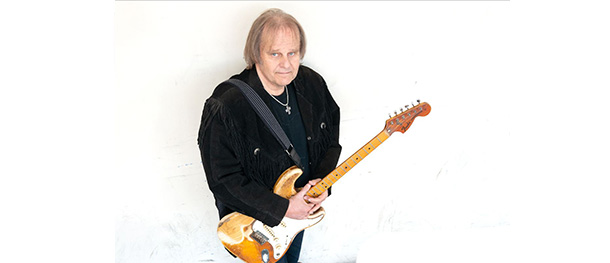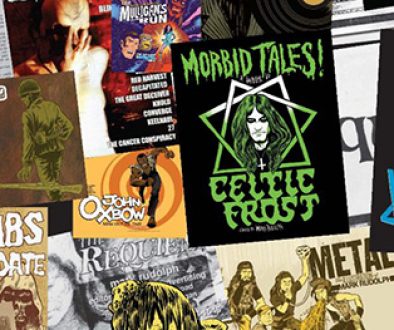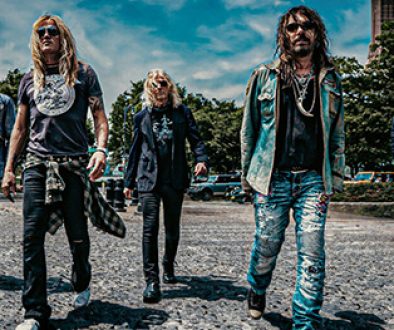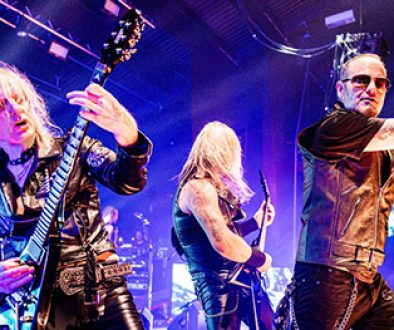Walter Trout announces new album: ‘Ride’
 The iconic US blues-rock guitarist Walter Trout is set to release his 30th solo album, Ride on 19 August via Provogue/Mascot Label Group. To celebrate the annoucement he has released his new song, “Ghost,” which you can listen to HERE. He will also be touring the UK this summer, calling through Chester (13 Jun), Buxton (14 Jun), Brighton (16 Jun), London (17 Jun), Holmfirth (18 Jun), Edinburgh (19 Jun), Bury St. Edmunds (20 Jun), Frome (21 Jun) and Southampton (22 Jun). Tickets are available from here.
The iconic US blues-rock guitarist Walter Trout is set to release his 30th solo album, Ride on 19 August via Provogue/Mascot Label Group. To celebrate the annoucement he has released his new song, “Ghost,” which you can listen to HERE. He will also be touring the UK this summer, calling through Chester (13 Jun), Buxton (14 Jun), Brighton (16 Jun), London (17 Jun), Holmfirth (18 Jun), Edinburgh (19 Jun), Bury St. Edmunds (20 Jun), Frome (21 Jun) and Southampton (22 Jun). Tickets are available from here.
However fast or far a man travels, he can never truly outrun his past. On his new album he found himself eyeing the horizon and the green shoots of his triumphant late career. There was a new record deal with Mascot/Provogue. A move from California to Denmark with his beloved family. Even now, aged 70, Trout was still writing fresh chapters of his life story.
The last time we saw Trout stepping out, he was on the road in support of 2020’s Ordinary Madness. The campaign ended in frustration, when Covid rendered live work too dangerous, both for this liver-transplant survivor and his fans, condemning Trout to an enforced downtime in Denmark that he hadn’t known in a half-century. “I’ve been at this since ’69, when I started out in the New Jersey bars,” he reflects. “Suddenly, I’m sat on my ass for sixteen months, although I did still practise guitar every day. My wife and manager Marie knew I needed to make music. So her present to me for my 70th birthday was a brand-new record deal she had negotiated. My producer, Eric Corne, scoped out a new studio in LA, and my plan was to fly home to make a new album.”
Arriving on the US West Coast two weeks before sessions began, Trout settled to write the Ride material in his now-deserted house in Huntington Beach, California. But even in this beachside paradise, amongst the swaying palms and ocean breeze, the past came calling. As long-standing Trout fans know, the Golden State has been the bluesman’s home for 47 years.
In time, Trout joined John Mayall’s Bluesbreakers lineup in ’85, before embarking on an acclaimed solo career from ’89 onwards. But before that came his chaotic, self-destructive years as a jobbing lead guitarist, whether for revered-but-tricky blues pioneers like John Lee Hooker and Big Mama Thornton, or an unhinged tenure in an ’80s Canned Heat lineup controlled by the Hell’s Angels.
Trout’s well-documented excess in this era was darker than a young rock star cutting loose. It could all be traced back to his troubled childhood in New Jersey, he explains, where an unstable stepfather – himself the victim of shocking cruelty as a prisoner of war – was a terrifying presence. As Ride took form, such memories couldn’t help but flavour the music. “This album is obviously what I was going through mentally and emotionally,” he considers. “All I did was express it. I spent a lot of time crying, because I would dig down into my emotional core. I want my songs to have some sort of truth to them.”
From the grinding riff and freight-train harp that light the fuse of opener Ghosts, it’s clear Ride is like nothing else in Trout’s catalogue. “That song was actually written as a poem,” he explains. “It starts off with the lyric, ‘Sometimes I hear a familiar song and it brings back memories’. That’s the truth. I’ll be riding in my car, a song comes on the radio and I have to pull over and sob for a while. Ghosts sums this album up, y’know?”
Some memories are long-distant but eternally poignant. Try the title track, recounting the locomotive that rattled past his childhood home each night and enticed him to freight-hop to freedom. The stormy Hey Mama takes inspiration from the same period, with Trout debating whether his trauma could have been averted. “I’m not pissed off with my mom and I love her memory,” he says, “but my wife says, ‘Your mom probably could have done more to protect you from your stepdad’. Yeah, maybe she could have. But it’s easy to say that looking back.”
Other songs are more recent and raw, like the slow-burn wee-small-hours lament Follow You Back Home, which channels Trout’s anguish during a period of marital difficulty. Yet Trout’s ruminations are not always negative. Reverb-cloaked, faintly Hendrixian and vocally influenced by Chet Baker, the stunning album closer Destiny gives an unvarnished account of the guitarist’s first meeting with Marie at a Danish blues festival in 1990.
By now, Trout knows that nobody ever really leaves their old selves behind. But with Ride providing an emotional release-valve – both for its creator and his loyal listeners – perhaps this veteran artist can reconcile with his past, accept his future and live in the present as it unfolds. “I think you can interpret this album title a few different ways,” he concludes. “I mean, this album is definitely a musical ride and I certainly tried to cover a lot of ground. But, really, life is kind of a ride too, isn’t it? And I want to live mine to the fullest.”
Walter Trout is the beating heart of the modern blues rock scene. Respected by the old guard. Revered by the young guns. Adored by the fans who shake his hand after the show each night, and after five decades in the game, Trout remains a talismanic figure. The New Jersey maestro spent time in John Mayall’s Blues Breakers and Canned Heat before embarking on a prolific solo career and his most recent releases have seen him at his most creative and powerful yet, from ‘The Blues Came Callin’ (2014) and ‘Battle Scars’ (2015) to ‘We’re All In This Together’ (2017), ‘Survivor Blues’ (2019) and ‘Ordinary Madness (2020).
For Walter Trout, there is no ‘us’ and ‘them.’ Across his five-decade career, the great US bluesman’s music has always been a lifeline and call-to-arms, reminding listeners they are not alone. In 2020, as the world took solace from a tragedy that touched us all, he came armed with a boundary-exploring new studio album and eleven searingly honest songs that bring his fans even closer. “There’s a lot of extraordinary madness going on,” considers Trout, of the COVID-19 crisis. “This album started because I was dealing with the flaws and weakness inside me. But it ended up being about everyone.”
Ordinary Madness was completed mere days before the US shutdown, its cathartic songcraft and themes of shared troubles couldn’t chime better with a period in which our souls and spirits are under fire from tumultuous global events.
He reflects, “sometimes you have to see through the darkness to find the light. I can’t wait get back out there again, meet the people at shows. I’m really looking forward to playing these songs live. Because I think this album speaks to these times…”







